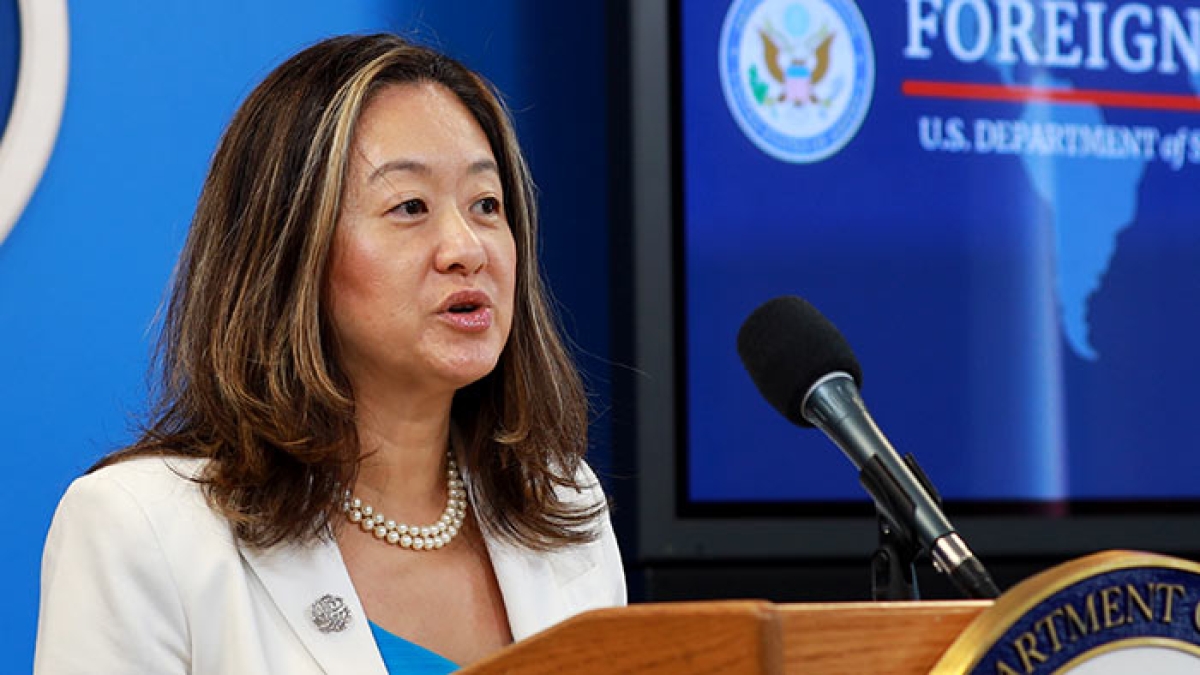In a compelling address at the 'Ocean Security: South Asia and The Indian Ocean' conference, US Ambassador Julie J. Chung underscored the critical role that Sri Lanka can play in shaping the future of the Indo-Pacific region. Chung commended Sri Lanka for its non-aligned and neutral stance, positioning the nation as a prime hub for multilateral engagements involving South Asian and Southeast and Northeast Asian countries.
During her remarks, Ambassador Chung, who has extensive experience in Southeast and Northeast Asia, highlighted Sri Lanka's potential and its ability to contribute significantly to the wider region. She stressed the need for Sri Lanka to shift from crisis mode to implementing sustainable and inclusive reforms, urging the country to confidently offer its experience, innovative thinking, and human resource capacity to its regional counterparts.
Ambassador Chung emphasized the importance of regional strategies and multilateral platforms as a means to unite countries with shared values and goals, creating a formidable collective influence across the broader Indo-Pacific region. Notable examples include BIMSTEC, SAARC, ASEAN, and IORA, of which Sri Lanka recently assumed the chairmanship. She highlighted that these initiatives showcase the region's diversity and the possibility that geopolitics does not have to be a zero-sum game.
In a gesture of respect for Sri Lanka's sovereignty and independence, Ambassador Chung pointed out specific instances of US support. She mentioned the Indo-Pacific Environmental Security Forum, a collaborative initiative between the U.S. Indo-Pacific Command and the Sri Lankan Navy, where over 100 participants from 28 countries gathered to discuss critical topics such as climate change, land security, maritime security, urbanization, and women, peace, and security. These discussions aimed to address environmental security challenges collaboratively, particularly concerning the climate crisis, which disproportionately affects island nations like Sri Lanka.
Ambassador Chung also highlighted the US's role in enhancing Sri Lanka's maritime security and domain awareness. The US has contributed resources and best practices to help Sri Lanka protect its economic resources and combat transnational criminal activities in its territorial waters and Exclusive Economic Zone. She pointed out that piracy, armed robbery at sea, and illegal fishing are threats to maritime security that affect the entire region. The US has donated three ships to the Sri Lanka Navy, demonstrating its commitment to a strong and prosperous Sri Lanka capable of thwarting coercion and threats from malign actors.
The ambassador noted the significance of the blue economy for Sri Lanka's development, emphasizing that investment in sustainable blue economies can drive economic growth while also protecting the environment. Given Sri Lanka's strategic location along busy shipping lanes, the country plays a vital role in ensuring the timely flow of global trade. Ambassador Chung revealed that the United States has dedicated over $2 billion in foreign assistance to Indo-Pacific priorities, focusing on economic development, finance, security capacity building, and global health and climate resilience aid.
Ambassador Julie J. Chung concluded her speech by highlighting the potential of Sri Lanka's critical role in the Indo-Pacific when a country prioritizes sovereignty, transparency, good governance, sensible reforms, and inclusive democratic engagement. She pledged the United States' commitment to stand shoulder to shoulder with Sri Lanka and all nations in the region to work collaboratively toward a more peaceful, prosperous, and resilient Indian Ocean region.










